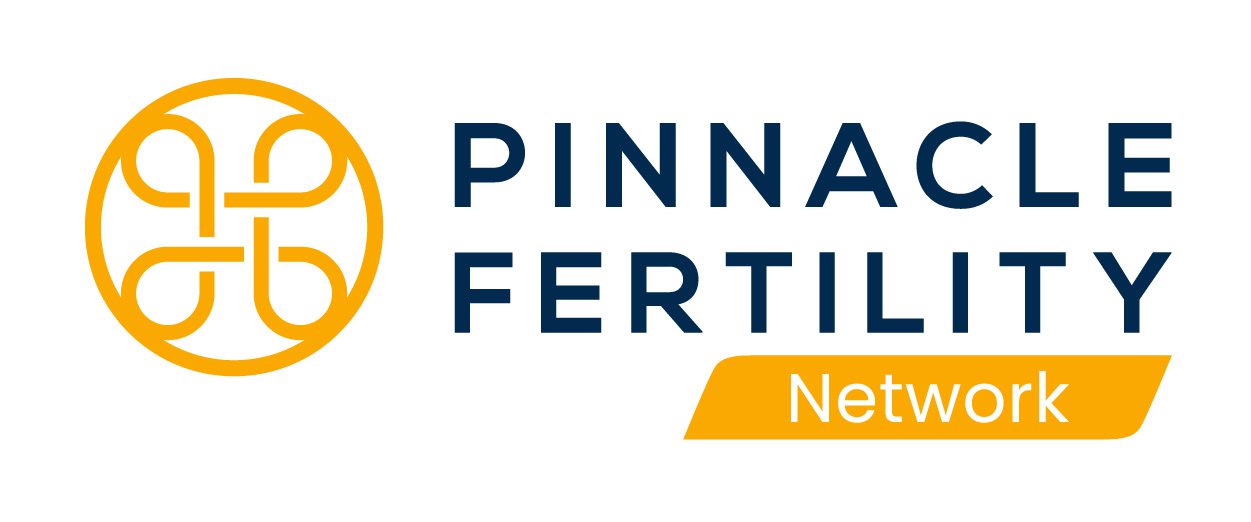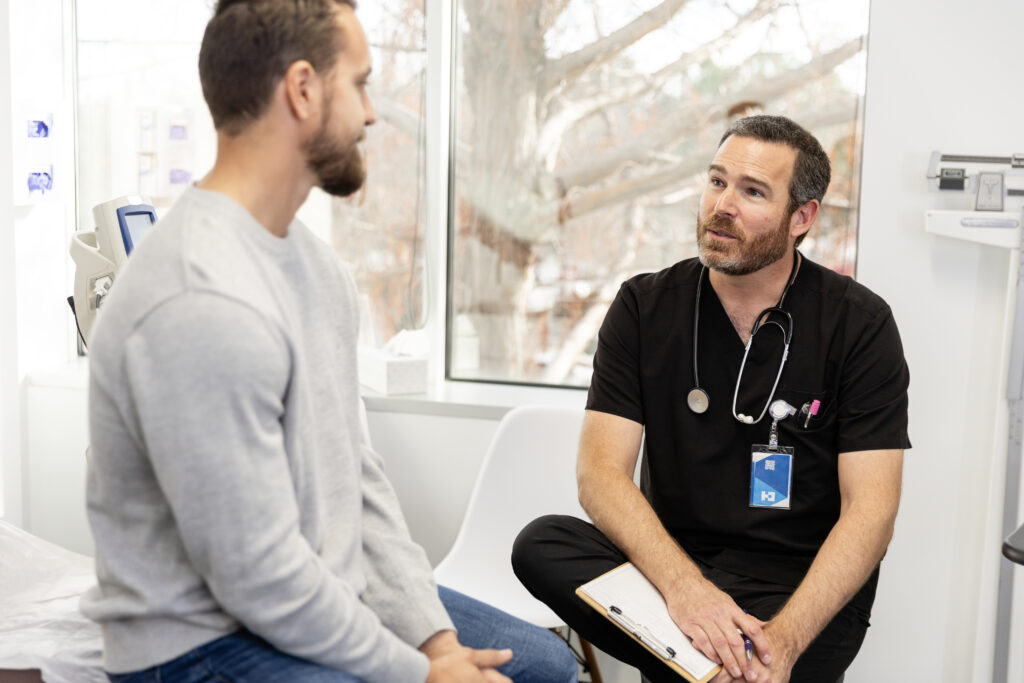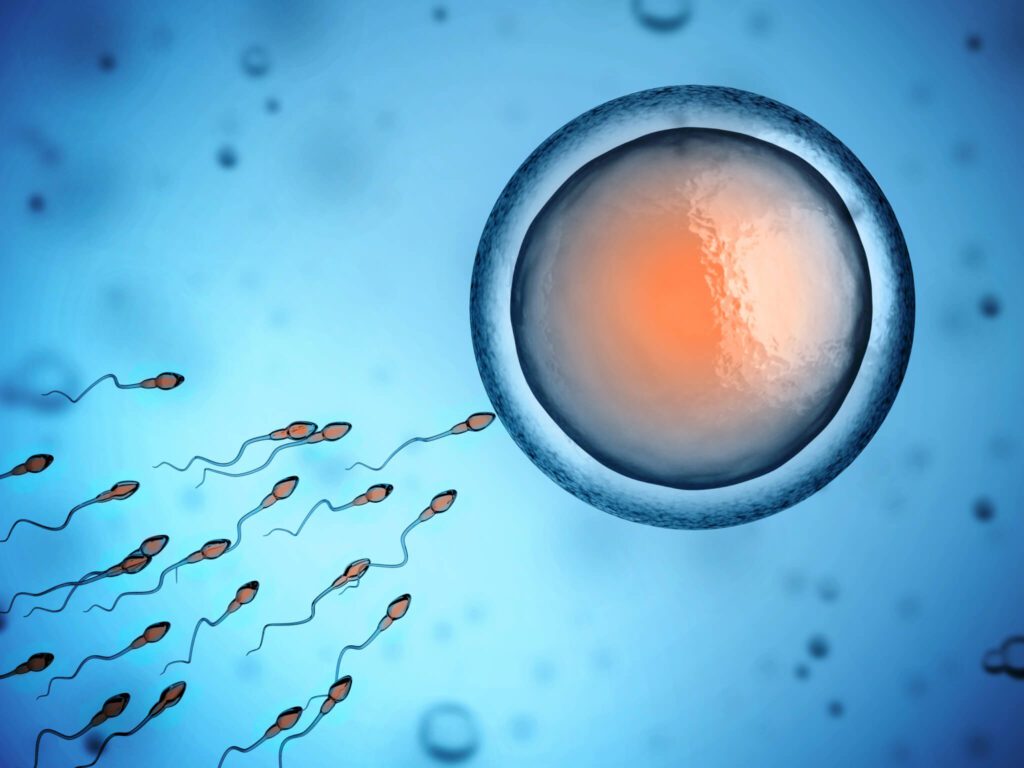First Appointment and Diagnosis
Infertility refers to the ability to conceive and carry a pregnancy to term. However, many individuals and couples face challenges with conception, which can stem from various factors. Common causes of infertility include ovulation disorders, low sperm count, blocked fallopian tubes, endometriosis, age-related decline in reproductive health, and lifestyle factors such as smoking, poor diet, or excessive alcohol consumption.
For couples trying to conceive, medical evaluation is recommended based on age. If a woman is under 35 and has been attempting pregnancy for over a year without success, consulting a doctor is advised. If she is over 35, seeking medical advice after six months of unsuccessful attempts is recommended.
During your first fertility consultation, you’ll meet with a specialist to review your medical history, lifestyle, and any previous attempts at conception. While many initial consultations are conducted virtually, in-person appointments are also available. Your doctor may recommend diagnostic tests, such as blood work or ultrasounds, to assess your reproductive health. Based on the findings, a personalized care plan will be created, and the next steps will be outlined. This visit is also an opportunity to ask questions and connect with the team dedicated to supporting you throughout your journey.
- Your doctor may recommend the following tests to assess reproductive health:
- Blood Tests: To check hormone levels and ovarian reserve.
- Ultrasound: To evaluate ovarian health and uterine structure.
- Semen Analysis (for male partners): To assess sperm count, motility, and morphology.
- Hysterosalpingogram (HSG): If needed, to check if fallopian tubes are open.
- Additional Tests: Based on your medical history, such as genetic screening or thyroid function tests.
These tests help your care team identify potential factors affecting fertility and guide your treatment plan.
- Gather Medical Records: Bring any relevant medical records, including details of previous fertility treatments, surgeries, or lab results.
- Know Your Health History: Be ready to discuss your personal and family health history, menstrual cycles, lifestyle habits, and prior attempts to conceive.
- Prepare Questions: Write down any questions or concerns you have for the specialist to make the most of your time during the appointment.
- Bring a Support Person (if applicable): If possible, bring your spouse, partner, or trusted support person to the appointment. Having someone with you can help ensure you don’t miss any important details.
- Check Insurance Coverage: Review your insurance benefits beforehand and bring any necessary documentation related to coverage for fertility services.
- Relax and Stay Positive: It’s normal to feel nervous, but this is an exciting first step toward building your family. The team is here to guide and support you along the way.
Yes, partners are welcome and encouraged to attend your first fertility appointment. Having your partner there can provide additional support and ensure both of you are involved in discussions about your fertility journey. It’s also helpful for your care team to gather a complete medical history from both of you, if applicable. If your partner can’t attend in person, many clinics offer virtual options to include them in the conversation.
IVF (In Vitro Fertilization)
A single IVF cycle typically takes 4-6 weeks from ovarian stimulation to embryo transfer. However, multiple cycles may be needed to achieve pregnancy. After the transfer, a two-week waiting period follows before taking a pregnancy test. If embryos are frozen for future use, the timeline may be extended based on your treatment plan.
While IVF is generally well-tolerated, some discomfort can occur. Ovarian stimulation injections may cause mild bloating or tenderness. The egg retrieval procedure is performed under light sedation, so you won’t feel pain during it, though some cramping may occur afterward. The embryo transfer is a quick and painless procedure, similar to a pap smear. If any part of the process causes extreme physical discomfort, please let your care team know immediately.
The cost of IVF varies based on factors such as medications, additional procedures (like genetic testing), and insurance coverage. Many clinics offer financing options or package plans to make treatment more accessible. Our team can provide a detailed breakdown of costs and discuss financial assistance options.
The number of embryos transferred depends on factors such as age, embryo quality, and previous IVF history. In most cases, one embryo is transferred to reduce the risk of multiple pregnancies. Your doctor will discuss the best approach based on your specific circumstances.
If you have additional embryos after your IVF cycle, they can be frozen for future use. This allows for additional attempts at pregnancy without needing to go through another full IVF cycle. You can also choose to donate them to another family or allow them to be used for research purposes.
IVF is a safe and well-established procedure, but like any medical treatment, it carries some risks. Potential side effects include mild bloating, cramping, or mood changes from hormone medications. More serious risks, such as ovarian hyperstimulation syndrome (OHSS) or multiple pregnancies, are rare and carefully monitored by your doctor.
FET (Frozen Embryo Transfer)
The FET procedure is generally painless and similar to an IUI or pap smear. Most patients report only mild cramping, and the procedure typically takes 10-15 minutes.
FET cycles typically take about 4-6 weeks. This includes preparing the uterine lining with hormone treatments, the thawing process for embryos, and the actual embryo transfer.
FET has similar, if not higher, success rates than fresh embryo transfers, particularly because it allows for optimal uterine preparation. The success rate depends on factors like embryo quality, maternal age, and overall health. Your fertility specialist will discuss your chances based on your specific situation.
After the transfer, you’ll be monitored for a short period in the clinic. Then, you’ll go home and follow your doctor’s instructions for rest and medication. About 10-14 days later, you’ll take a pregnancy test to confirm if the transfer was successful.
FET is generally a safe procedure with minimal risks. However, as with any fertility treatment, there are some potential risks, such as implantation failure or the possibility of multiple pregnancies if more than one embryo is transferred. Your fertility team will monitor you closely and guide you through each step.
Genetic Testing
The testing process involves safely removing a few cells from the embryo’s outer layer. Studies show this does not harm embryo development or implantation potential when performed by experienced embryologists.
While it improves success rates by selecting the healthiest embryos, genetic testing cannot guarantee pregnancy. Other factors, such as uterine health and overall embryo quality, also play a role.
No. Preimplantation genetic testing is strictly for medical purposes, identifying chromosomal or genetic disorders—not selecting traits.
Testing results typically take 1-2 weeks or longer. If you plan to use the results to select an embryo, you may need to freeze embryos and schedule a frozen embryo transfer (FET) in a future cycle.
Coverage varies depending on your insurance provider and medical necessity. It’s best to check with your insurance or fertility clinic for cost details and financial options.
IUI (Intrauterine Insemination)
Most patients report little to no discomfort during the procedure. Some may experience mild cramping similar to menstrual cramps, but the process is quick and typically does not require anesthesia.
IUI is less invasive and more affordable than IVF. It enhances the natural fertilization process by placing sperm closer to the egg, whereas IVF involves retrieving eggs, fertilizing them in a lab, and transferring embryos into the uterus.
Fertility medications are sometimes used to stimulate ovulation and improve success rates, but IUI can also be done in a natural cycle if ovulation occurs regularly. Your doctor will determine the best approach based on your medical history.
A single IUI cycle typically lasts about two weeks, including monitoring ovulation, preparing sperm, and performing the procedure. A pregnancy test is taken about two weeks after insemination to determine the outcome.
IUI is a low-risk procedure, but potential risks include mild cramping, a small chance of infection, and an increased risk of multiple pregnancies if fertility medications are used.
Many fertility specialists recommend trying 3-6 cycles of IUI before moving on to more advanced treatments like IVF, depending on age and fertility diagnosis. This is on a case-by-case basis.
Coverage varies by provider and state. Some insurance plans cover diagnostic testing and part of the procedure, while others may not. It’s best to check with your insurance company or clinic for financial options.
Egg Retrieval
The egg retrieval procedure is a key step in IVF, egg freezing, or egg donation. It allows doctors to collect mature eggs from your ovaries, which can then be fertilized for IVF, frozen for future use, or donated to help others build their families.
Most patients experience little to no pain during the egg retrieval procedure because it’s done under light sedation. Some mild cramping or bloating may occur afterward, but it usually resolves within a day or two.
The egg retrieval typically lasts about 15–30 minutes. You’ll be sedated for the procedure, and most patients can rest and go home the same day.
The number of eggs retrieved varies depending on individual response to ovarian stimulation. Most women retrieve between 8-15 eggs, but this can vary. Your fertility specialist will monitor you closely to maximize the number of eggs retrieved while minimizing the risk of ovarian hyperstimulation syndrome (OHSS).
Once the eggs are retrieved, they are either fertilized in the lab for IVF or frozen for future use if you’re preserving fertility. If you’re undergoing egg donation, the eggs will be used by intended parents or frozen for later use.
Before the procedure, you’ll be instructed to avoid eating or drinking for several hours, as sedation is used during the retrieval. Your doctor will provide detailed pre-procedure instructions, and it’s important to follow them closely for the best outcome.
While egg retrieval is generally safe, there are some risks, including mild complications like ovarian hyperstimulation syndrome (OHSS), infection, or bleeding. These risks are low and are closely monitored by your fertility team.
Most patients feel well enough to return to work or normal activities within 1–2 days after the procedure. It’s a good idea to take it easy for the first day to allow your body time to recover from the sedation and any mild discomfort.
You’ll typically be informed of the number of eggs retrieved the same day or the next day. Your fertility clinic will notify you of the results and the next steps in your treatment plan.
Egg Freezing
The recommended number varies by age. Generally, 10-20 eggs per intended pregnancy is suggested, as not all eggs will survive thawing, fertilization, and implantation.
Egg freezing increases the chances of having a biological child later, but it does not guarantee pregnancy. Success depends on the age at freezing, the number of eggs stored, and overall reproductive health.
Eggs can remain frozen indefinitely without losing quality, thanks to advanced vitrification techniques. Successful pregnancies have been achieved from eggs frozen for over a decade.
The procedure is performed under light sedation, so there is minimal discomfort. Some women may experience mild cramping or bloating afterward, which typically resolves within a few days.
Egg freezing is a low-risk procedure, but potential side effects include bloating, mild discomfort, and, in rare cases, ovarian hyperstimulation syndrome (OHSS), which can cause swelling and fluid retention.
When ready, the eggs are thawed, fertilized with sperm through IVF, and transferred to the uterus for implantation. The process is similar to a traditional IVF cycle.
Fertility Medications
Fertility medications are generally safe when prescribed and monitored by a healthcare professional. However, like all medications, they can have side effects. These may range from mild (e.g., bloating, headaches, mood swings) to more serious conditions such as ovarian hyperstimulation syndrome (OHSS). Your doctor will carefully tailor your treatment to minimize risks.
The side effects depend on the specific medication but can include:
- Hot flashes
- Nausea
- Headaches
- Bloating
- Mood swings
- Multiple pregnancies (increased chance of twins or more)
Your doctor will discuss potential side effects and help manage them if they occur.
Yes, certain fertility medications, like Clomid and gonadotropins, can increase the likelihood of multiple pregnancies (twins, triplets, or more). The risk varies by medication and individual response. Your doctor will monitor your treatment to reduce this risk while maximizing your chances of a successful pregnancy.
Fertility medications can be taken in various forms, including oral tablets, injections, or vaginal suppositories. Oral medications, like Clomid or letrozole, are easy to take at home, while injectable hormones may require instruction for proper administration.
Yes, monitoring is essential to ensure the medication is working effectively and to reduce the risk of complications like OHSS. Monitoring often involves blood tests and ultrasounds to track hormone levels and follicle development.
The timeline depends on the medication and the underlying fertility issue. Some people may conceive within the first few cycles, while others may require additional treatments or adjustments to their protocol.
Coverage varies widely depending on your insurance plan and location. Some plans may cover medications partially or fully, while others may not include them at all. Check with your provider or ask your clinic’s financial counselor for assistance.
If fertility medications alone are not successful, your doctor may recommend advanced treatments like IUI, IVF, or other ART options. The course of action will depend on your diagnosis, treatment history, and personal preferences.
Male Infertility
Diagnosis often starts with a semen analysis to evaluate sperm count, motility, and morphology. Additional tests may include blood work for hormone levels, genetic testing, ultrasound, or testicular biopsy.
Yes. Factors such as smoking, excessive alcohol consumption, drug use, obesity, stress, and exposure to environmental toxins or heat can negatively impact sperm quality and production.
Treatments depend on the cause and may include:
- Medications for hormonal imbalances or infections.
- Surgical procedures for blockages or varicoceles.
- Assisted reproductive technologies (ART) such as intrauterine insemination (IUI) or in vitro fertilization (IVF) with intracytoplasmic sperm injection (ICSI).
In some cases, yes. Azoospermia (no sperm in semen) may result from blockages or low production. Surgical sperm retrieval techniques, like testicular sperm extraction (TESE), can sometimes recover viable sperm for use in ART.
While men can father children later in life, sperm quality tends to decline with age. This can result in lower pregnancy rates, increased risk of miscarriage, or higher chances of genetic abnormalities in offspring.
Cancer & Fertility Preservation
Cancer treatments like chemotherapy, radiation, and surgery can affect fertility by damaging reproductive organs or altering hormone levels. We offer several fertility preservation options, including egg freezing, sperm banking, embryo freezing, and ovarian tissue freezing. These methods have a good track record of success, especially when completed before treatment. Our specialists will help you determine the best option based on your diagnosis and treatment plan.
It’s best to start as early as possible. The first step is scheduling a consultation with one of our fertility specialists. We’ll review your medical history, discuss preservation options, and create a personalized plan that aligns with your cancer treatment timeline. In many cases, fertility preservation can be completed within two weeks.
The cost varies depending on the services needed, such as stimulation cycles and storage fees. Many insurance providers offer partial coverage for medical fertility preservation, while others may not. We’ll help you navigate your options and connect you with financial assistance programs if needed.
It’s still possible, although options may be more limited depending on how much treatment has been completed. It’s best to consult with a specialist as soon as possible to explore available options.
The storage length depends on the laws in your state and our clinic’s policies. In most cases, eggs, sperm, and embryos can be stored for many years. We’ll work with you to develop a long-term storage plan that fits your needs.
LGBTQ Family Building
There are many options, including:
- Insemination: Using donor sperm with intrauterine insemination (IUI) or at-home insemination.
- In Vitro Fertilization (IVF): Using donor sperm or donor eggs, with one or both partners participating in the process.
- Reciprocal IVF: One partner provides eggs, while the other carries the pregnancy.
- Surrogacy: A gestational carrier carries a child conceived through IVF.
- Adoption or Foster Care: Welcoming a child through legal adoption or fostering programs.
Yes, fertility treatments are available for LGBTQ individuals and couples. Many fertility clinics specialize in LGBTQ-inclusive care and offer services like donor sperm, donor eggs, and gestational surrogacy to help build families.
When selecting a donor, you can choose from an anonymous donor through a sperm or egg bank or a known donor (someone you know personally). Many fertility clinics provide detailed profiles of anonymous donors, including medical history, education, physical traits, and even personality traits. The right choice depends on your personal preferences, legal considerations, and comfort level.
Reciprocal IVF allows one partner in a same-sex female couple to provide the eggs, while the other carries the pregnancy. This process involves retrieving eggs from one partner, fertilizing them with donor sperm, and transferring the embryo into the other partner’s uterus. It’s a beautiful way for both partners to be biologically involved in the pregnancy.
For same-sex male couples, surrogacy typically involves using an egg donor and a gestational carrier. One partner provides sperm, which is used to fertilize the donor’s eggs through IVF. The resulting embryo is then transferred into the gestational carrier, who carries the pregnancy. Legal agreements with both the egg donor and the gestational carrier are essential.
Transgender individuals can preserve their fertility through options such as sperm freezing or egg freezing prior to undergoing gender-affirming treatments or surgeries. Many clinics also offer fertility treatments like IVF, IUI, and surrogacy tailored to the needs of transgender individuals and couples. Discussing your goals with a fertility specialist is a great first step.
Affording Care
Coverage for fertility treatments varies depending on your insurance provider, plan, and state. Some plans cover diagnostic testing, medications, or procedures like IUI or IVF, while others may not offer any fertility-related benefits. Check your policy details or contact your insurance company to understand what is covered and if pre-authorization is required.
If your insurance does not cover fertility treatments, you can explore alternative options such as clinic payment plans, fertility financing programs, or personal loans. Many clinics partner with third-party lenders that offer loans specifically for medical procedures. Additionally, grants and scholarships from nonprofit organizations may be available to help reduce costs.
Yes, several organizations and programs provide financial assistance for fertility treatments, such as grants, scholarships, or discounted services. Examples include the Baby Quest Foundation, the Cade Foundation, and Resolve’s Family Building Grants. These programs typically require an application and may have specific eligibility criteria.
View Fertility Resources from our Experts

Find Your Clinic
With 40+ locations nationwide, discover expert fertility care close to home. Connect with leading professionals who will guide you on your path to parenthood.





